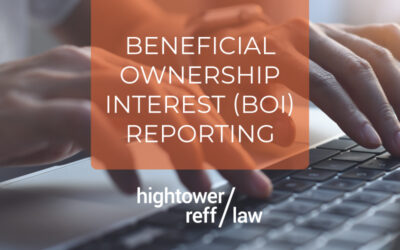
Lawyers can seem like they’re from a foreign land with their own strange customs and language. And, let’s face it, sometimes (okay, a lot of times) some lawyers seem unapproachable, which can make the client experience less than a good one.
At Hightower Reff Law, we do our best to be approachable, talk like real people and have a productive relationship with our clients. However, like many lawyers, despite our best efforts to do this, we sometimes fall short of our clients’ expectations.
In this series, What to Expect from Your Lawyer, Hightower Reff Law Partner Attorney Susan Reff will give you some useful information to help you understand why your lawyer handles things the way they do and to maintain reasonable expectations regarding your attorney.
Part I: Top five things to know about phone calls.
1. Call Me, Maybe? – Or Maybe Your Lawyer is a Jerk
One of the most common complaints about lawyers is that it may seem they take forever to return calls or don’t return them at all.
Despite the appearance, most of us really do get that timely return calls are important to the client. I say most of us, because – as with any profession – there are a few bad lawyers out there. Either they are bad at managing their case load, have personal problems or they are just jerks. However, other than those exceptions, we attorneys do our very best to make our clients happy with all aspects of our communications with them – including phone calls.
But there are several reasons you may not get a timely return call or talk directly with your attorney at all. Understanding why and keeping reasonable expectations can be helpful to a good client experience.
2. It’s Usually About Time
Good lawyers attract a lot of clients. Lawyers with a lot of clients are always pressed for time. That’s why they typically rely on trusted staff to help manage their cases and communicate with clients. Support staff can answer routine questions, field calls and follow up with the lawyer on any questions the lawyer needs to answer. This support frees your lawyer up to do things that only they can do. Actions like planning your legal strategy, attending hearings, solving emergencies and negotiating with opposing counsel.
In other words, your lawyer has to prioritize his or her time to do their job well. That doesn’t mean you aren’t important. In fact, it means you’re so important, they want to be sure they can devote the necessary time to your case when your case demands it. They need to do the same for their other clients as well.
As a result – unless you’re in the middle of a complex issue, crisis or negotiation in your case, preparing for a hearing or trial that is happening soon or in the throes of another legally dire aspect of your case – it’s reasonable that your attorney may enlist the support of another lawyer in the firm, a paralegal or assistant to take care of your phone calls.
3. It’s Privileged
In some circumstances, a lawyer actually can’t call a person back because of attorney-client privilege, such as when the caller isn’t the client. This commonly happens when someone other than the client is paying the lawyer’s bill.
For example, you hire a lawyer to represent your son in his divorce. That lawyer can’t talk to you about the case unless your son signs a release.
In some circumstances – like criminal cases – the lawyer may not talk to you even if a release has been signed. This is because sharing details of the case with anyone but the client may jeopardize your case. Sharing that information means it’s no longer privileged and could be used against the client. You could be called by the other side to testify about what the attorney told you.
4. The World’s Most Expensive Pay Phone
Before you pick up the phone to call your lawyer – remember that each time you call, you are going to incur a charge on your bill. Sometimes calling your attorney can seem like the world’s most expensive pay phone.
Unless it’s something urgent or time sensitive, ask yourself if the question can wait until the next time they call you, or until you have more than one question. We recommend our clients make a list of these “little” questions that are bound pop up. With this list, you can ask them all at once.
But what if you are a person who needs regular reassuring from your attorney personally? Well, if your attorney is willing and able, you may want to schedule a weekly phone call with them when you are in the active phases of your case. That way, you can have peace of mind by touching base at least once a week. And have your “little question list” ready to go for the weekly call.
5. Sometimes It’s Not a Good Fit
There are many legitimate reasons a lawyer may take a long time to return your phone calls or not call back at all. But like with any personal service, sometimes what the lawyer is willing or able to do and what you want does not mesh. It may just not be a good fit. If that is the case, it’s best to figure it out early and find a better fit.
A good attorney who is the right fit for you is crucial, and Hightower Reff Law can help. Call us at 402-932-9550, or contact us online.
Next Time…
Read Part II of our series: Why You Need to Pick Your Battles.
This article should not be construed as legal advice. Situations are different and it’s impossible to provide legal advice for every situation without knowing the individual facts.




